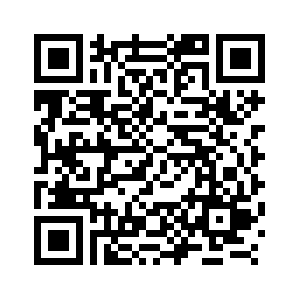MUNICH, Germany, Feb. 16 (Xinhua) -- The 61st Munich Security Conference (MSC) has placed U.S.-Europe relations under intense scrutiny, with tensions rising over Washington's position on the Ukraine crisis, its comments on European internal matters, and U.S. President Donald Trump's recent phone call with Russian President Vladimir Putin.
All these developments, experts said, have contributed to growing strain in transatlantic relations.
CONTROVERSIAL SPEECH
"If American democracy can survive 10 years of Greta Thunberg's scolding, you guys can survive a few months of Elon Musk."
These remarks were made by U.S. Vice President J.D. Vance -- delivered, as he described, "with all humor" -- during his keynote speech at the opening day of the conference on Friday. His words were followed by several seconds of silence and later sparked widespread backlash across Europe.
This year's conference received special attention due to potential solutions to the Ukraine crisis. Washington's position was under particular scrutiny, as Trump had spoken with both Russian and Ukrainian leaders ahead of the conference.
However, in his speech, Vance only briefly touched on the Ukraine issue, stating that while the United States believed a reasonable resolution between Russia and Ukraine was possible, Europe's biggest threat came from within. He went on to accuse the bloc of abandoning its fundamental values and criticize its suppression of political expression.
"The strong dissatisfaction with Vance's speech among attendees is what makes this year's MSC different -- something we have never seen before," Xiao Qian, deputy head of the Center for International Security and Strategy at Tsinghua University, told Xinhua.
Xiao noted that the speech completely deviated from the usual discourse of transatlantic security elites at such forums. Instead, the U.S. vice president unexpectedly criticized and even lectured European politicians, openly exposing the rift between the United States and its European allies.
Vance's words have drawn wide opposition from European leaders, who see it as external interference in their domestic politics.
German Chancellor Olaf Scholz hit back at Vance's remarks in his speech the following day, stating that Germany would "not accept outsiders intervening in its democracy, its elections and the democratic formation of public opinion."
Similarly, Kaja Kallas, the European Commission's high representative for foreign affairs and security policy, commented on Vance's speech that it seemed intended to provoke conflict with Europe. "We do not want to pick a fight with our friends," she said.
COORDINATION FAILURES ON UKRAINE
Vance's highly anticipated meeting with Ukrainian President Volodymyr Zelensky during the Munich event yielded no significant progress. As Trump said earlier this week that negotiations to end the nearly three-year Ukraine war will start "immediately" after holding a phone call with Putin, Europe fears that it may be sidelined in potential negotiations on the Ukraine crisis.
The concerns were amplified by blunt remarks from Trump's Ukraine envoy, Keith Kellogg, who declared Saturday that there will be no seat for Europe at the table in Ukraine peace talks.
In response to Trump's unilateral announcement that he and Putin had agreed to "immediately" start peace talks, top foreign affairs officials from major European countries, including Germany, France and Poland, issued a joint statement, stressing that both Ukraine and Europe must be part of "any negotiation."
"This is an existential moment, and it's a moment where Europe has to stand up," said German Foreign Minister Annalena Baerbock at an MSC panel. Europe must stand up, she noted, adding that the response to others' "My Nation First" is "Europe United."
Beyond the negotiation issue, deep transatlantic divisions persist over how to ensure Ukraine's security.
Armida van Rij, a senior research fellow at the Chatham House, noted that the U.S. position on the Ukraine crisis is driven by "naked self-interest." Washington, she noted, is shifting from burden-sharing in European defense to burden-shifting to reduce its defense spending, while simultaneously increasing weapons sales to ensure Europe remains dependent on the United States.
UNCERTAINTIES IN TRANSATLANTIC TIES
Founded in 1963, the MSC was once dubbed a "transatlantic family meeting," and has since served as a crucial platform for strengthening U.S.-Europe relations.
However, the differences between the United States and Europe at this year's event have come to the fore, causing the transatlantic partnership to encounter a "cold front."
Addressing the conference's opening ceremony, German President Frank-Walter Steinmeier openly rebuked the U.S. administration's position on issues such as the resettlement of Palestinians in Gaza.
He stated that the new American administration shows no regard for established rules, for partnerships, or for the trust that has been built over time.
Wang Junsheng, a researcher at the National Institute of International Strategy of the Chinese Academy of Social Sciences, noted that Trump's recent remarks about Canadian and Greenlandic territories reflect a broader disregard for international norms, further eroding trust in the global order. This sentiment, he added, has been a major source of unease for Europe at this year's conference.
Europe remains deeply uncertain about the future of NATO and other transatlantic cooperation mechanisms under Trump's leadership. Wang pointed out that this anxiety extends beyond security concerns to economic issues, including the threat of punitive tariffs.
A survey by the European Council on Foreign Relations released this week revealed that in major European nations like Germany, France, Italy and Spain, less than 20 percent of the respondents still regard the United States as an ally that shares common values and interests.
Transatlantic policy coordination is expected to grow increasingly difficult, Xiao, deputy head of the Center for International Security and Strategy at Tsinghua University, said. Europe wants the United States to remain engaged and supportive. It also insists that Europe's future is up to it, resisting American interference in its internal affairs.
This contradiction, or dilemma, could force Europe to pursue greater strategic autonomy, Xiao said, adding that policy coordination between the United States and Europe will face more difficulties in the future. ■



